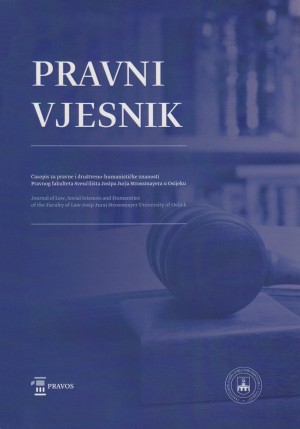VALUE EDUCATION IN LAW SCHOOL CURRICULUM: CULTIVATING MORAL AUTONOMY
VALUE EDUCATION IN LAW SCHOOL CURRICULUM: CULTIVATING MORAL AUTONOMY
Author(s): Nikol ŽihaSubject(s): Higher Education , Sociology of Education, Sociology of Law, Pedagogy
Published by: Pravni fakultet Sveučilišta Josipa Jurja Strossmayera u Osijeku
Keywords: ERR framework; legal education; moral reasoning; critical pedagogy; value education; values;
Summary/Abstract: According to the EU Justice Scoreboard reports, over 70% of Croatian citizens are dissatisfied with the Croatian judiciary, particularly its independence and efficiency. This paper addresses the deep-rooted challenges in the country’s legal education system. Despite reform initiatives, the current system serially produces ‘legal technicians’ lacking values, critical thinking capacity, and active student engagement. This echoes Montesquieu’s depiction of legal practitioners as ‘mouths that pronounce the words of the law.’ Acknowledging the pivotal role of legal education methodology in the creation of future legal practitioners and legal culture, this contribution explores how an average regular educator can support the development of students’ moral reasoning and values awareness. Through predominantly analytical research methods, we critically examine whether higher education environments should incorporate value education, the feasibility of teaching values in the traditional sense, and the potential of ethical analysis in a classroom to truly influence ethical behaviour in practice. Furthermore, we explore the complex matter of authority to decide on values to be imparted and delve into value education methodology. Concluding with practical suggestions, we propose the integration of the Evocation-Realization of meaning-Reflection (ERR) framework into lectures, as well as various creative tools to enhance moral reasoning.
- Issue Year: 40/2024
- Issue No: 1
- Page Range: 7-29
- Page Count: 23
- Language: English

